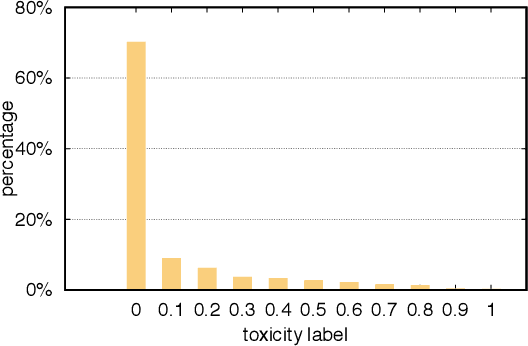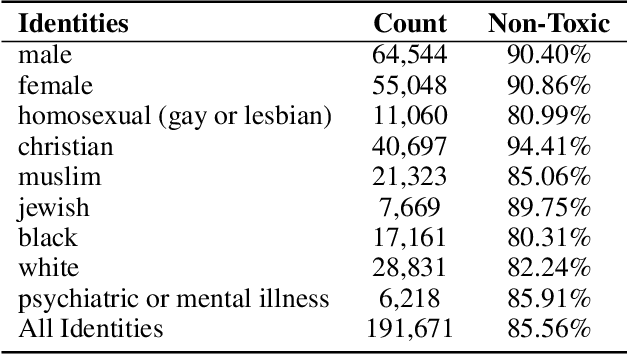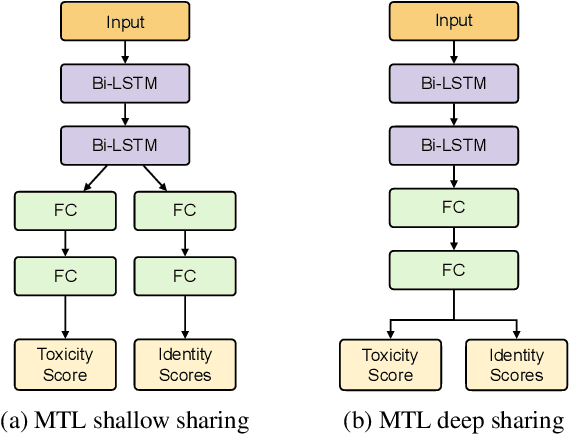Empirical Analysis of Multi-Task Learning for Reducing Model Bias in Toxic Comment Detection
Paper and Code
Sep 26, 2019



With the recent rise of toxicity in online conversations on social media platforms, using modern machine learning algorithms for toxic comment detection has become a central focus of many online applications. Researchers and companies have developed a variety of shallow and deep learning models to identify toxicity in online conversations, reviews, or comments with mixed successes. However, these existing approaches have learned to incorrectly associate non-toxic comments that have certain trigger-words (e.g. gay, lesbian, black, muslim) as a potential source of toxicity. In this paper, we evaluate dozens of state-of-the-art models with the specific focus of reducing model bias towards these commonly-attacked identity groups. We propose a multi-task learning model with an attention layer that jointly learns to predict the toxicity of a comment as well as the identities present in the comments in order to reduce this bias. We then compare our model to an array of shallow and deep-learning models using metrics designed especially to test for unintended model bias within these identity groups.
 Add to Chrome
Add to Chrome Add to Firefox
Add to Firefox Add to Edge
Add to Edge